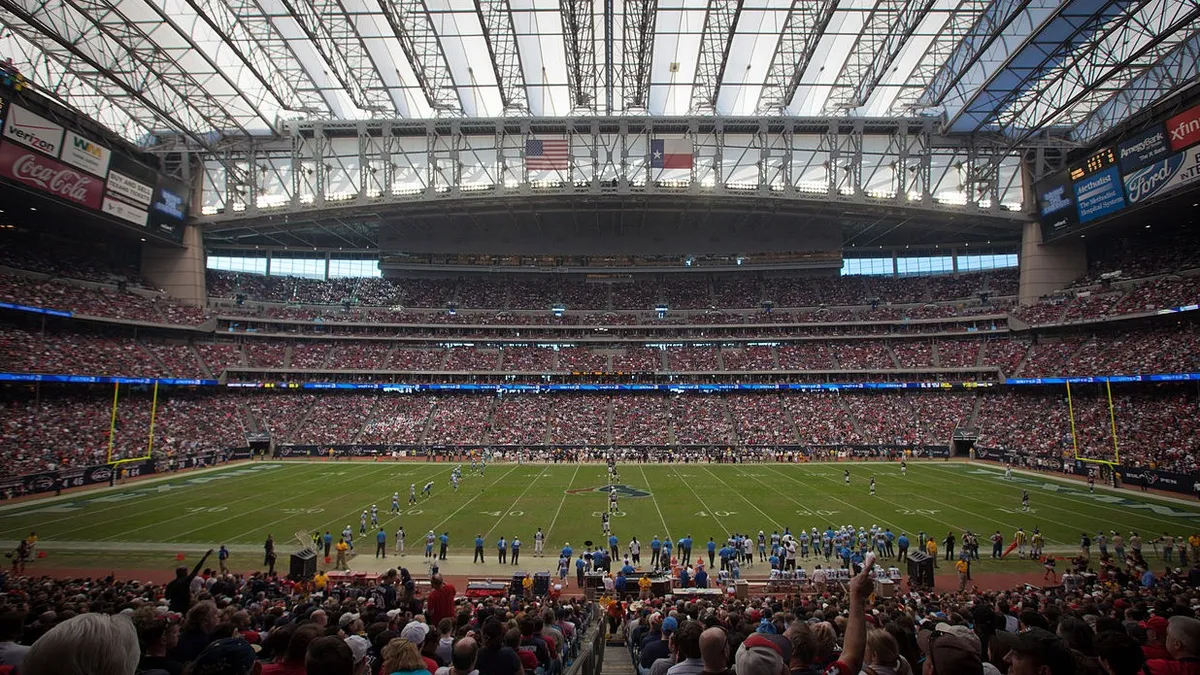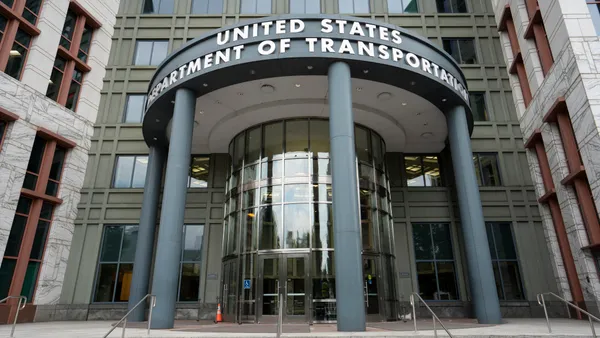Dive Brief:
- Millions of fans will tune into Super Bowl LI for a few hours on Sunday to watch the New England Patriots take on the Atlanta Falcons at NRG Stadium in Houston. However those fans may not know that the planning required to minimize waste at the event has been going on for months.
- At least 150 new recycling bins have been brought in to supplement the existing system, and the Houston Food Bank has also organized about a dozen local agencies to recover as much surplus, unserved food as possible. The Houston Super Bowl Host Committee, in partnership with Verizon, also conducted the NFL's fourth-annual e-waste drop-off event at the Houston Zoo two weeks ago. About 10 tons of devices were collected during a four hour period.
- A host of other local organizations have been coordinating recovery efforts to pick up building equipment, carpeting and other materials from the stadium and Super Bowl Live event downtown. For example, more than 75,000 sq. ft. of mesh fence wrap material will be recovered for reuse locally.
Dive Insight:
Environmental planning for the Super Bowl happens more than a year in advance and is very dependent on local recycling processing infrastructure, stadium systems and weather. City officials from Houston, representatives of the Salvation Army, Habitat for Humanity and the Houston Zoo, among many others, have all been involved in the planning for months.
“The whole idea behind it is to keep this stuff out of landfills, but beyond that to find valuable uses for it in the community," Jack Groh, director of the NFL Environmental Program, told Waste Dive.
Groh said that by planning ahead, these organizations can identify beneficial uses for the vast amounts of material that go into a multi-day event attended by thousands. A local animal shelter will use some of the turf-like carpeting that has been laid out downtown and Habitat for Humanity will see how much material they can recover from temporary structures. The zoo got involved in the e-waste recycling event because the mining of rare earth metals used in many devices can destroy gorilla habitats in some countries.
In recent years, multiple Super Bowls have reached high diversion rates through food scrap collection and volunteer sorting efforts. Groh said his main goal every year is to improve on the existing diversion rate in the municipality or stadium where they're working. Because Houston doesn't have suitable large-scale organics processing options in the region, food scraps will not be collected at the stadium this year.
"We're in a different city every year and every community has a different recycling infrastructure unique to that city," he said.
During more than 20 years of Super Bowls, Groh has learned to adapt to conditions throughout the country. Some years that means hosting an e-waste collection event in the middle of Times Square in January weather, other years it means planting trees in the Bay Area. The frigid winter temperatures in Minneapolis are expected to make environmental efforts around next year's Super Bowl LII especially difficult, yet the NFL environmental team — which began planning for that event at least four months ago — plans to make it work.













